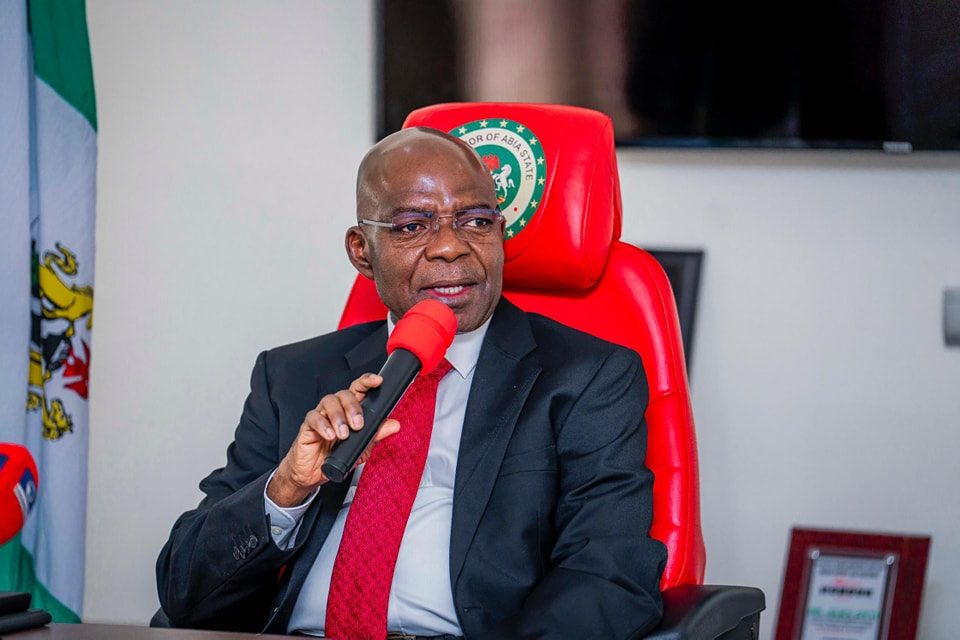• Says technology innovations introduced by his leadership has inputs from stakeholders
Adedayo Akinwale in Abuja
The Inter Party Advisory Council (IPAC) has commended former Chairman of the Independent National Electoral Commission (INEC), Prof. Mahmood Yakubu, for his contribution to reforming the nation’s electoral system through the massive introduction of technology.
It added that the technologies that were introduced by Yakubu during his tenure were home grown technologies, built in-house by the staff of the commission.
It explained that there were no technological innovations introduced by Yakubu that had no input and acceptability from political parties, civil society organisations and all the stakeholders.
The IPAC Chairman, Yusuf Dantalle, disclosed this on Wednesday in Abuja at a colloquium on 10 years of leadership of Yakubu as INEC Chairman.
He added that votes of Nigerians counted during the general election despite voter apathy, adding that with the technological innovations introduced by the Yakubu leadership, it became difficult for political parties to manipulate the system through the use of fake voter cards, while also ensuring that only registered voters participated.
Dantalle stated: “In the past, votes were manufactured, results were announced and you have 20 something million, 30 something million. Professor Mahmood was to first clean the voter’s register using technology and now, you cannot have more than one person on the register.
“The name you have here, if you go to Bayelsa, is the same person, if you go to Akwa Ibom. So with that process, the voter’s list was cleaned up. There you have the underage voters that we used to have.
“We have seen fake PVCs that were produced and being thrown in the gutter, we saw it and we brought it. But it was not from INEC and those PVCs could not pass the test of BVAS because they are fake. That was because of the technology introduced under the leadership of Professor Mahmood.
“So, when the election was conducted in 2023, people complained about voter apathy. But the truth is that even though there was voter apathy, votes were no longer being manufactured by politicians. The votes you saw during the election are the actual votes from Nigerians and nobody could vote more than once.
“We saw an election where a sitting governor lost election to the Senate. It happened in Enugu, it happened in Benue, it happened in Kebbi where sitting governors couldn’t win because votes counted. We saw a Peter Obi who does not have councillors anywhere, no local government chairman, defeating the incumbent president in Lagos because votes counted.”
Dantalle emphasised that in the past, political parties could manipulate the process of submitting names of their candidates for every election, adding that the Yakubu Mahmood era at INEC put an end to that as well as the nefarious activities associated with it.
He explained that before now, political parties were coming with trucks of sacks of documents from primary elections to coalition centres.
Delivering his keynote address, Prof. Emmanuel Aiyede of the University of Ibadan said technology alone was not enough to ensure a credible election.
To this end, he called for a forward looking approach to handling issues of electoral reforms in the country.
Aiyede was of the opinion that the true measure of leadership lies not merely in what one accomplishes, but in the structures one leaves behind to sustain progress.
He said Nigeria’s electoral journey under Yakubu has been redefined by a quiet but profound technological revolution.
Aiyede noted: “From the Bimodal Voter Accreditation System (BVAS) and the INEC Results Viewing Portal (IReV) to the digitalisation of candidate nomination, observer accreditation, and voter registration, technology has become the new grammar of electoral credibility.
“These tools did not emerge by accident; they were the product of foresight, an understanding that democracy in the twenty-first century must rest on verifiable data, not just declarations.
“However, Yakubu’s real legacy lies not in the machines themselves, but in the institutional mindset that now governs their use.
“He helped shift INEC from seeing technology as a novelty to treating it as infrastructure, as integral to electoral governance as polling booths and ballot boxes.
“The commission under his watch learned that technology cannot substitute for integrity, but it can amplify it. It cannot eliminate manipulation, but it can make manipulation traceable, accountable, and therefore riskier.
“The next frontier for Nigeria’s democratic consolidation lies in deepening and sustaining this institutional culture. As INEC enters a post-Yakubu era, the challenge will be twofold: to preserve the gains of digital transparency while addressing the operational bottlenecks that accompany them.
“Technology must now evolve from tools of election-day administration to instruments of long-term democratic planning, powering data-driven decisions on constituency delimitation, voter education, logistics, and security coordination.
“Equally, the commission must continue to professionalise its human capital. Machines can authenticate fingerprints, but only human integrity can authenticate elections. The future will demand a new generation of electoral managers fluent in both law and technology. INEC requires individuals who can navigate not only codes and algorithms but also the ethical dilemmas of power, persuasion, and public trust.
‘’For Nigeria, the path ahead is both challenging and promising. The 2022 Electoral Act has created the legal foundation for a more transparent system. What remains is to ensure its faithful implementation across every state, every polling unit, and every election cycle.
“As network infrastructure improves and as digital literacy expands, the full promise of the BVAS and IReV systems will begin to unfold, reducing human error and strengthening confidence in the ballot as the ultimate arbiter of legitimacy.
“But democracy cannot rely on technology alone. The future of Nigeria’s elections will depend on institutional cooperation and civic responsibility. Political parties must internalise democratic norms, the judiciary must uphold electoral justice with courage, security agencies must act with impartiality, and citizens must continue to defend the sanctity of the vote.”




